News & Events
St. James Hospital Welcomes Asfandyar Khan, M.D., New Fulltime General Surgeon
Monday, December 28, 2020
Leadership at St. James Hospital is pleased to welcome new general surgeon, Asfandyar Khan, M.D.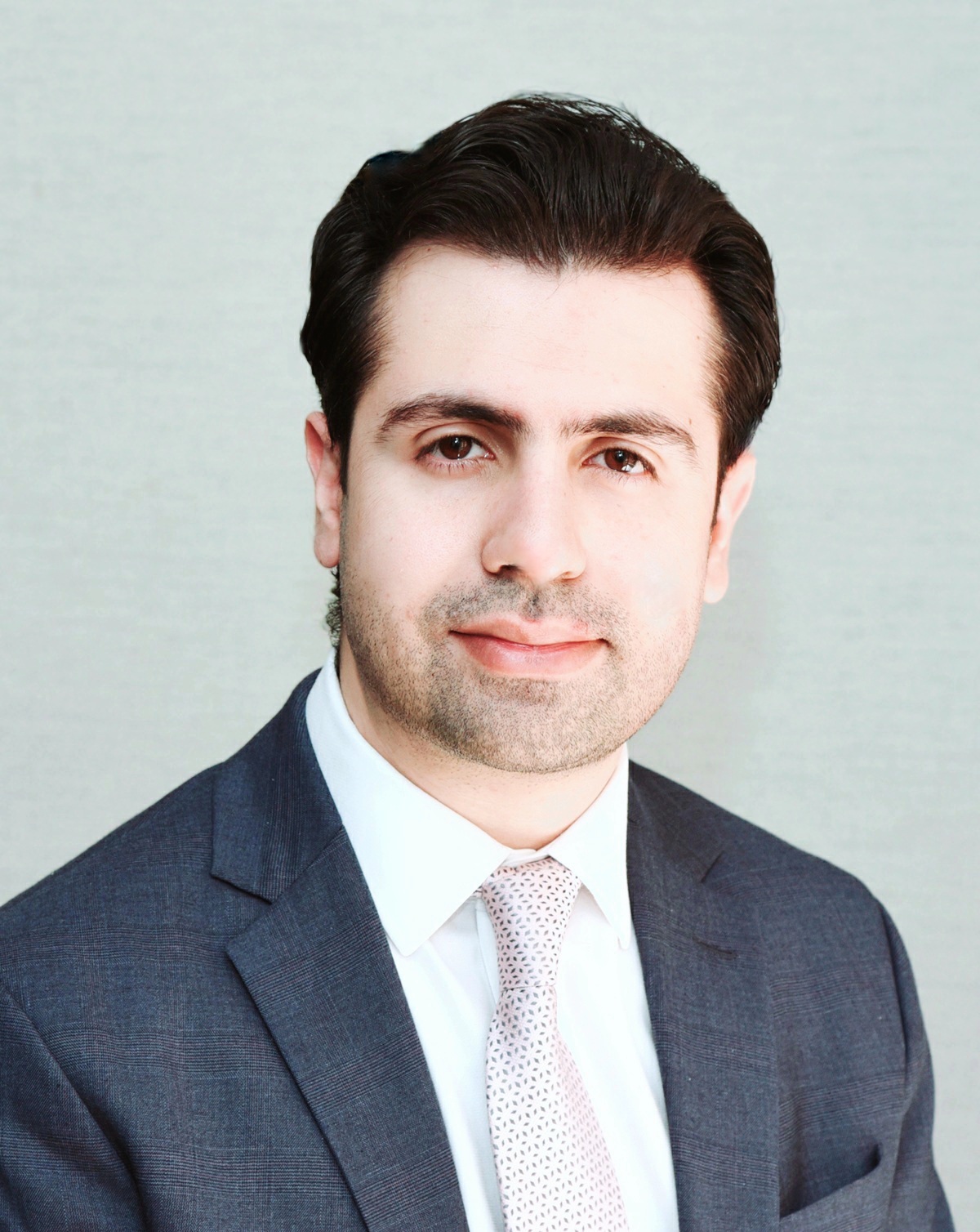
Based fulltime in Hornell, Dr. Khan provides broad-based general surgery services. He specializes in laparoscopic surgery for the gall bladder, hernias, thyroid, anorectal disease, colon, stomach, upper and lower endoscopy, skin cancer, port placement, and skin/soft tissue infections.
Dr. Khan earned his medical degree at Ziauddin University (Pakistan) and completed a residency in general surgery at the University of Illinois - Metropolitan group hospitals Chicago.
"I chose to become a physician to help patients and see them get better," said Dr. Khan. "General surgery is one of the fields in which we obtain instantaneous results and are able to see the immediate difference we have made in someone's life. For me, this results in a special feeling and is extremely humbling."
The addition of Dr. Khan completes the general surgery team at St. James.
"Dr. Khan joins Dr. Andrew Powers and Courtney Quinlan, P.A., our other talented general surgery providers," said Bryan O'Donovan, president and CEO. "Dr. Ted Kaufman is also joining us as regional surgery chief. We now have a complete and highly skilled team, ready to serve the community in our state-of-the-art new surgical center."
In addition to joining St. James Hospital fulltime, Dr. Khan also recently moved to Hornell from Chicago.
"Being able to personally take care of patients and being entrusted to provide them with surgical care is a great honor," he said. "My philosophy is to treat each patient as if he or she was a member of my own family. I look forward to working with my patients and referring providers and being part of our local community."
Dr. Khan's office is located at the St. James Specialty Clinic, Suite 102, 7309 Seneca Rd., Hornell. For more information or to make an appointment call (607) 385-3820.
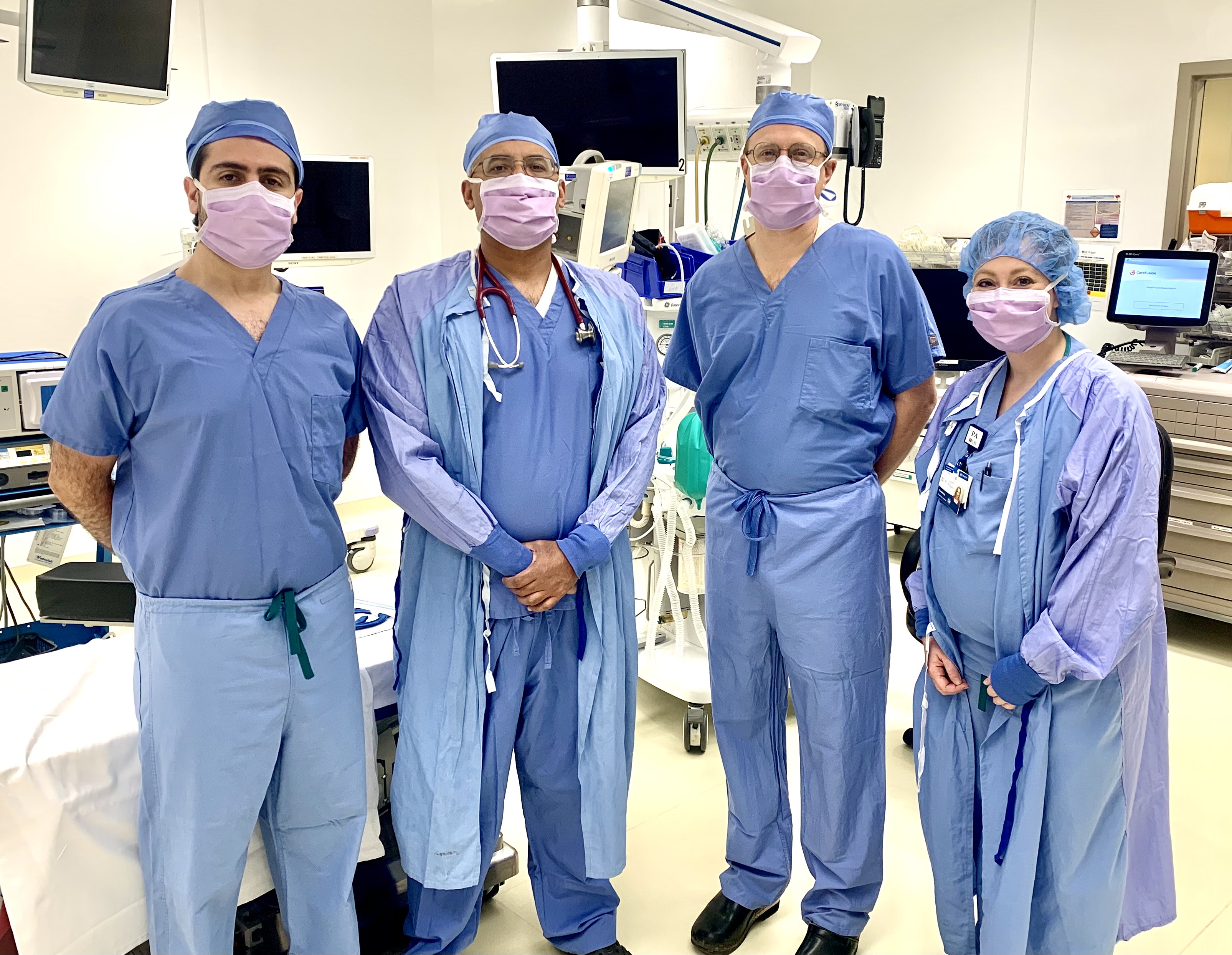
Dr. Asfandyar Khan (standing left) joins St. James Hospital General Surgery team Dr. Ismail Mehr, Dr. Andrew Powers, and Courtney Quinlan, PA.
St. James Hospital Welcomes New Orthopaedic Nurse Practitioner, Heather Cox
Monday, December 14, 2020
Leadership at St. James Hospital is pleased to welcome new orthopaedic provider, Heather Cox, F.N.P., effective December 14, 2020.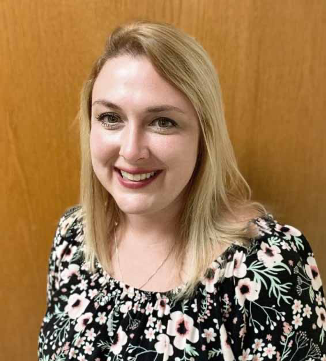
Ms. Cox specializes in diagnosing and treating upper and lower extremity injuries and illnesses, and has a special interest in spine conditions. She will see patients four days a week at the St. James Hospital Center for Orthopaedic Care in Hornell.
"We are very excited to bring someone of Heather's caliber to St. James," said Shawn Valentine, director of St. James orthopaedics and rehabilitation. "She is a well-respected clinician and has extensive experience in treating pediatric and adult patients with sports injuries, soft tissue, and skeletal conditions."
"We have a busy orthopaedic program at St. James," said Marc O'Donnell, M.D., "and bringing Heather into our practice will help expand our capabilities and round out the program."
Ms. Cox received her masters nursing practitioner degree from SUNY Stony Brook and her bachelor of science in nursing from Keuka College. She has also served as an instructor at Alfred State College, and has spent much of her career in the Southern Tier as an orthopaedic and family nurse practitioner.
Ms. Cox joins physicians Marc O'Donnell and Paul Axtell at the St. James Hospital Center for Orthopaedic Care at 7309 Seneca Rd. Suite 107, Hornell. Patients and referring providers may call 607-385-3740 to make appointments.
Steuben County Manager and Leadership at UR Medicine/St. James Hospital Urge the Community to Maintain Safety Amid Growing COVID-19 Cases
Friday, December 11, 2020
As the number of confirmed COVID-19 cases grows in Hornell and surrounding communities, officials at Steuben County and St. James Hospital ask community members to continue taking every precaution to stay safe.
"The seven day rolling average of positive cases is higher than what we saw in the spring, having reached double digits this week," said Jack Wheeler, Steuben County manager. "As of December 10th we were at almost 2,300 confirmed cases and 110 deaths. We simply want people to stay as safe and healthy as possible, and minimize their risk of exposure."
"We have seen a recent surge of COVID cases with more admissions to the hospital," said Bilal Ahmed, M.D., chief medical officer. "Over the last two weeks hospitalization rates have increased at St. James and at all of the regional hospitals."
"We are taking all the necessary precautions to keep our staff and patients safe through screening, safe distancing, and use of Personal Protective Equipment," said Bryan O'Donovan, president and CEO. "Through our collaboration with UR Medicine, we have a 90-day supply of PPE on hand."
Dr. Ahmed encourages community members to continue seeking routine and emergency care when needed.
"People should stay in touch with their primary care provider for any health needs. Anyone with severe symptoms -- such as shortness of breath and high fever -- should go to the emergency department for a higher level of care, and if possible should call in advance (607-247-2300)."
St. James Hospital Announces 2021 Board Officers
Thursday, December 3, 2020
St. James Hospital announces its new board officers, effective January 1st, 2021.
At its annual meeting held on December 1, 2020, the St. James Board of Directors elected Shawn Hogan as board chair, Pete Wall as vice-chair, Brian Schu as secretary, and John Weyand as treasurer. Each were elected to one-year officer terms.
Mr. Hogan, former mayor of Hornell, is taking the chair position currently held by Susan Gray, PhD.
"We are extremely grateful to Sue for her leadership as the board chair for the last three years," said Bryan O'Donovan, president and CEO. "She led us through the opening of the new medical office building and new hospital, as well as provided exceptional support during the pandemic."
"Shawn has been a staunch supporter of St. James and we welcome him as our new board chair," said O'Donovan. "We appreciate all of our volunteer board members for their time and effort, as they provide important governance and guidance to St. James Hospital, and play an integral role to our continued success."
General Surgeon from Bassett Healthcare Joins URMC
Saturday, November 28, 2020
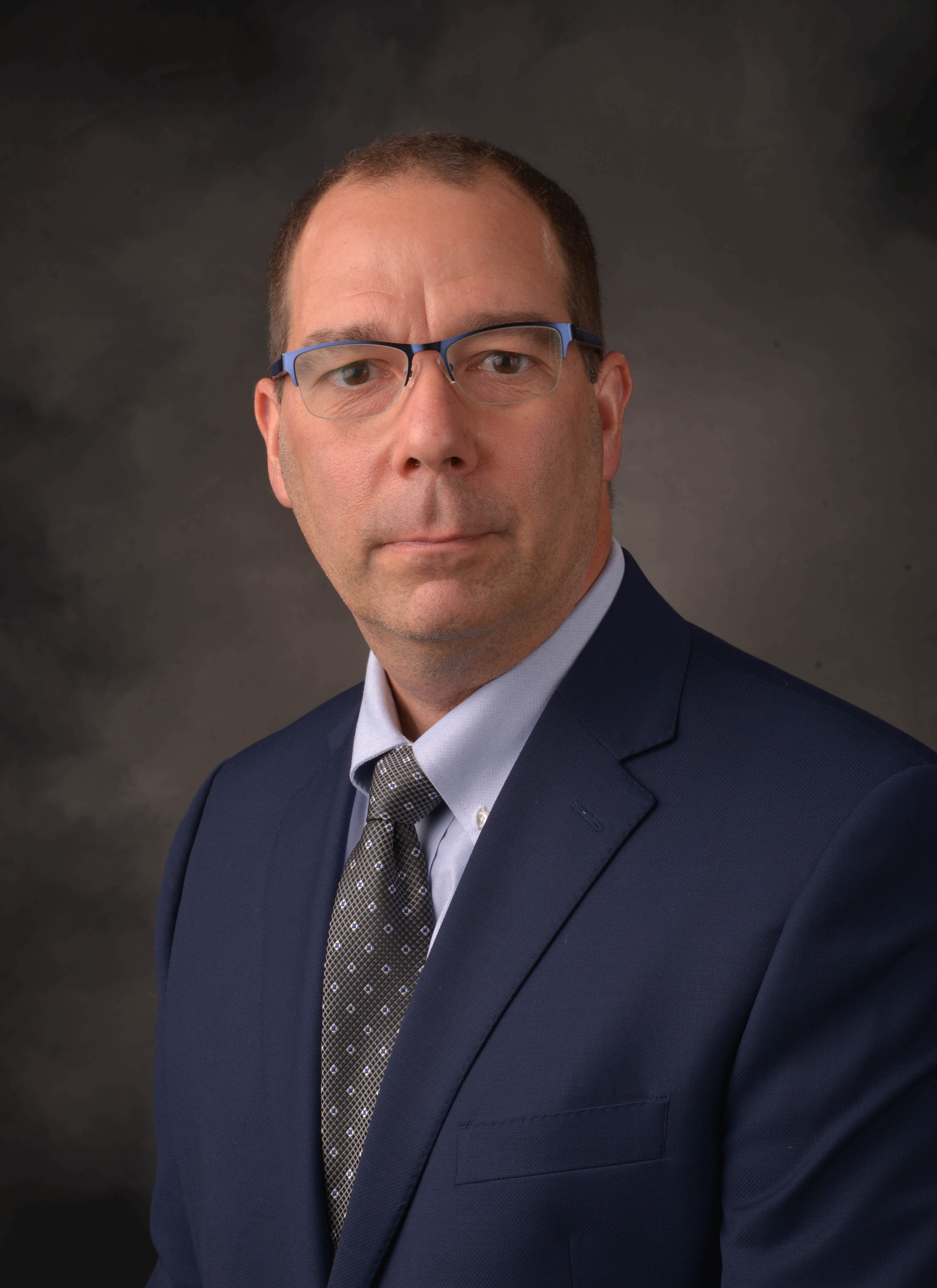 The University of Rochester Medical Center welcomes Theodor I. Kaufman, M.D., FACS, to the Department of Surgery. Kaufman was recruited from Bassett Healthcare in Cooperstown to enhance UR Medicine's general surgery program and further strengthen the health system's surgery presence in the Finger Lakes and Southern Tier regions. He began Nov. 15.
The University of Rochester Medical Center welcomes Theodor I. Kaufman, M.D., FACS, to the Department of Surgery. Kaufman was recruited from Bassett Healthcare in Cooperstown to enhance UR Medicine's general surgery program and further strengthen the health system's surgery presence in the Finger Lakes and Southern Tier regions. He began Nov. 15.
Based in Canandaigua at F.F. Thompson Hospital, Kaufman will provide patients with a wide range of general surgery options: general abdominal surgery -- gastric, intestinal, spleen, gallbladder, hiatal hernias, groin hernias, complex abdominal wall hernias; skin cancer-related surgery; endocrine surgery -- thyroid, parathyroid, adrenal surgery; and breast cancer-related surgery.
He also will serve as division chief for UR Medicine Regional Surgery, working collaboratively with established surgeons at affiliates Jones Memorial Hospital in Wellsville, St. James Hospital in Hornell, Noyes Health in Dansville, and F.F. Thompson, as the expanding team focuses on strategies to grow the programs at their respective hospitals.
"Providing medical care in rural America is a particular passion of mine," Kaufman said. "I have spent my entire career in rural areas serving patients, and led a training program in Cooperstown for young surgeons who are equally passionate about ensuring all patients, no matter their location, have access to high-quality care that allows them to stay close to home for procedures and post-surgical recovery."
"I am excited to join URMC, a world-class institution, and look forward to further integrating the health care across our vast network to function as a cohesive unit that is supported by the Medical Center, as it continues to deliver top-notch care at the local level in all of our communities of the Finger Lakes and Southern Tier."
Kaufman will work closely with the growing regional surgery team, including several new surgeons who have recently joined the health system:
• Du Nguyen, M.D., who sees patients at Jones Memorial, with expertise in advanced minimally invasive surgery, laparoscopic colon surgery, anorectal diseases, hernia repairs, endocrine surgery, breast surgery, and endoscopy.
• Andrew Powers, M.D., who sees patients at F.F. Thompson and St. James, with expertise in advanced minimally invasive surgery, robotic surgery, laparoscopic colon surgery, hernia repairs, and acid reflux.
• Asfandyar Khan, M.D., who joins the medical staff of St. James in December, with expertise in advanced minimally invasive surgery, laparoscopic colon surgery, anorectal diseases, hernia repairs, breast surgery, and endoscopy.
"We are very proud of the work that has been done in assembling an integrated regional surgical program that serves our immediate rural communities," said David C. Linehan, M.D., the Seymour I. Schwartz Professor of Surgery and chair of the Department of Surgery. "After a national search, we feel fortunate to have recruited Dr. Kaufman. He is recognized as a leader in rural surgical education and will lead our mission in developing a first-rate clinical program, with the goal of training future surgeons in this important and underserved realm of surgery."
St. James Hospital Welcomes Li-Hsiang Yen, M.D., New Fulltime Radiologist
Wednesday, November 25, 2020
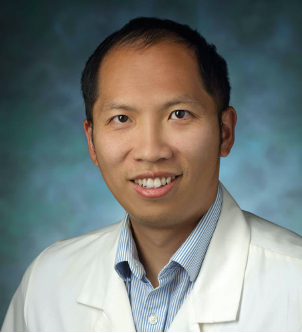
Leadership at St. James Hospital is pleased to welcome a new fulltime diagnostic radiologist, Li-Hsiang Yen, M.D., who will join in December.
Dr. Yen specializes in diagnosing injuries and diseases using medical imaging (radiology) procedures such as X-rays, computed tomography (CT), magnetic resonance imaging (MRI), and ultrasound. His fellowship training includes further sub-specialization regarding diagnosing conditions in the chest, abdomen and pelvis. He will also offer new procedures at St. James Hospital such as fluoroscopy, a type of medical imaging that shows a continuous X-ray image on a monitor. He will be located at St. James Hospital five days a week.
Dr. Yen earned his medical degree at National Yang-Ming University (Taiwan), completed a general surgery internship at the Mayo Clinic (Rochester, MN), a radiology residency at Rutgers - New Jersey Medical School (Newark, NJ), and a clinical fellowship in cross-sectional body imaging at Johns Hopkins Hospital (Baltimore, MD).
"I am very excited to join the team at St. James Hospital and University of Rochester, seeking to provide state-of-the-art diagnostic imaging services at Hornell," said Dr. Yen.
"Dr. Yen is a significant addition to the St. James medical staff," said Bryan O'Donovan, president and CEO. "He will provide valuable support to our emergency and hospitalist providers and to local physicians, and expand the array of specialized radiology services that we can offer in our new, advanced imaging suite."
Dr. Yen recently relocated from Towson, Maryland to live in Hornell. Learn more about St. James imaging services.
St. James Hospital Asks for the Public’s Help in Limiting Visitors for Outpatient Appointments
Wednesday, October 21, 2020
St. James Hospital is limiting the number of visitors for outpatient services and appointments at the Medical Office Building and the Hospital. This includes visits to the emergency department, imaging department, primary care, specialty clinic, ambulatory surgery, stress testing, cardiac rehab, coumadin clinic, physical therapy, orthopaedics, podiatry, lab, and urgent care.
This is in response to the increasing number of COVID-19 cases in the greater Hornell area and the start of flu season.
"We are taking all precautions to protect staff and patients from exposure to this infectious disease," said Bryan O'Donovan, president and CEO. "If it's safe for the patient, we are asking family members and drivers to drop the patient off in front of the buildings and wait in their vehicle."
Patients who need help or have special circumstances are excluded from the request.
"Any patient who needs extra assistance is welcome to be escorted by a visitor," said O'Donovan. "All we ask is for people to use discretion and if they can, to arrange to drop off and pick up patients at the front entrance."
For added safety, everyone entering the Medical Office Building and Hospital has to answer a series of screening questions and is required to wear a mask and sanitize their hands upon entering the building and throughout their visit.
"By continuing to follow these precautions, we will minimize the spread of illness to our staff and patients," said O'Donovan. "We sincerely appreciate the community's support as we work together to stay safe during these challenging times."
St. James Hospital Restricts Inpatient Visitation Amid Growing COVID-19 Cases
Thursday, October 15, 2020
St. James Hospital is restricting inpatient visitation as of 4pm on Friday, October 16, in response to the growing number of confirmed COVID-19 cases in the greater Hornell area and Steuben County.
"We need to implement a no-visitor policy for the safety of our staff and other patients," said Bryan O'Donovan, president and CEO. "The exceptions are end-of-life situations, or for pediatric or special circumstances."
Steuben County Health Department reports continued significant increases in positive COVID cases throughout the greater Hornell area.
"We understand how important visitation is to patients," said Bilal Ahmed, MD, chief medical officer. "But with the resurgence of the virus, safety is and continues to be our number one priority. We are working closely with the Department of Health and UR Medicine to monitor the situation and guide our actions, and we will re-evaluate the visitor restriction when it's safe to do so."
The new no-visitor restriction applies to St. James Hospital inpatient unit. Visitor restrictions are still in place for patients coming to the emergency department, or for tests and procedures.
"We greatly appreciate the community's cooperation as we manage this ever-changing situation, to keep our patients and staff safe," said O'Donovan. Family members may call the hospital at (607) 247-2200 to discuss their relative's specific situation.
St. James Hospital to Offer Scheduled Drive-Up COVID Testing By Appointment
Wednesday, October 7, 2020
St. James Hospital will begin offering scheduled drive-up COVID-19 swab testing by appointment starting Friday, October 9. The service will be available at the Medical Office Building, 7309 Seneca Rd., Hornell, seven days a week. Patients should call (607) 247-2218 to schedule an appointment time.
Patients will need a requisition (paper or electronic prescription) from their healthcare provider, and will need to pre-register for their appointment. The patient's insurance will be billed for the test; patients without insurance may call (607) 247-2218 for financial assistance.
St. James drive-up COVID testing will operate as follows:
- Each patient must have a written or electronic requisition (prescription) from their healthcare provider for COVID testing. It may be faxed to (607) 385-3616.
- Each patient will call (607) 247-2218 to pre-register and schedule a time for their drive-up test.
- Patients will stay in their vehicles at all times and follow the signs to the testing area.
- Patients may access their test results through UR MyChart, or the provider who ordered the test will contact the patient when results are available.
"We want to keep our patients safe while also providing them with the best care possible," said Bryan O'Donovan, president and CEO. "Drive-up testing is a way for patients to receive COVID testing without risking exposure to and from others. This service is for pre-procedural patients, as well as those that have an order from their healthcare provider and need test collection as part of their care. As always, individuals that need to be seen by a provider can access our Urgent Care center."
St. James Urgent Care (7309 Seneca Rd., Suite 103) is open seven days a week, 10am -- 8pm. Patients with Urgent Care questions are encouraged to call ahead at (607) 385-3800.
To schedule a drive-up COVID test call registration at (607) 247-2218, Monday -- Friday, 8am -- 4:30pm.
UR St. James Primary Care Now Accepting New Patients
Thursday, October 1, 2020
UR St. James Primary Care is accepting new patients of all ages. Located at 7309 Seneca Rd., Suite 109 in Hornell, the practice offers complete care for adults, newborns and children.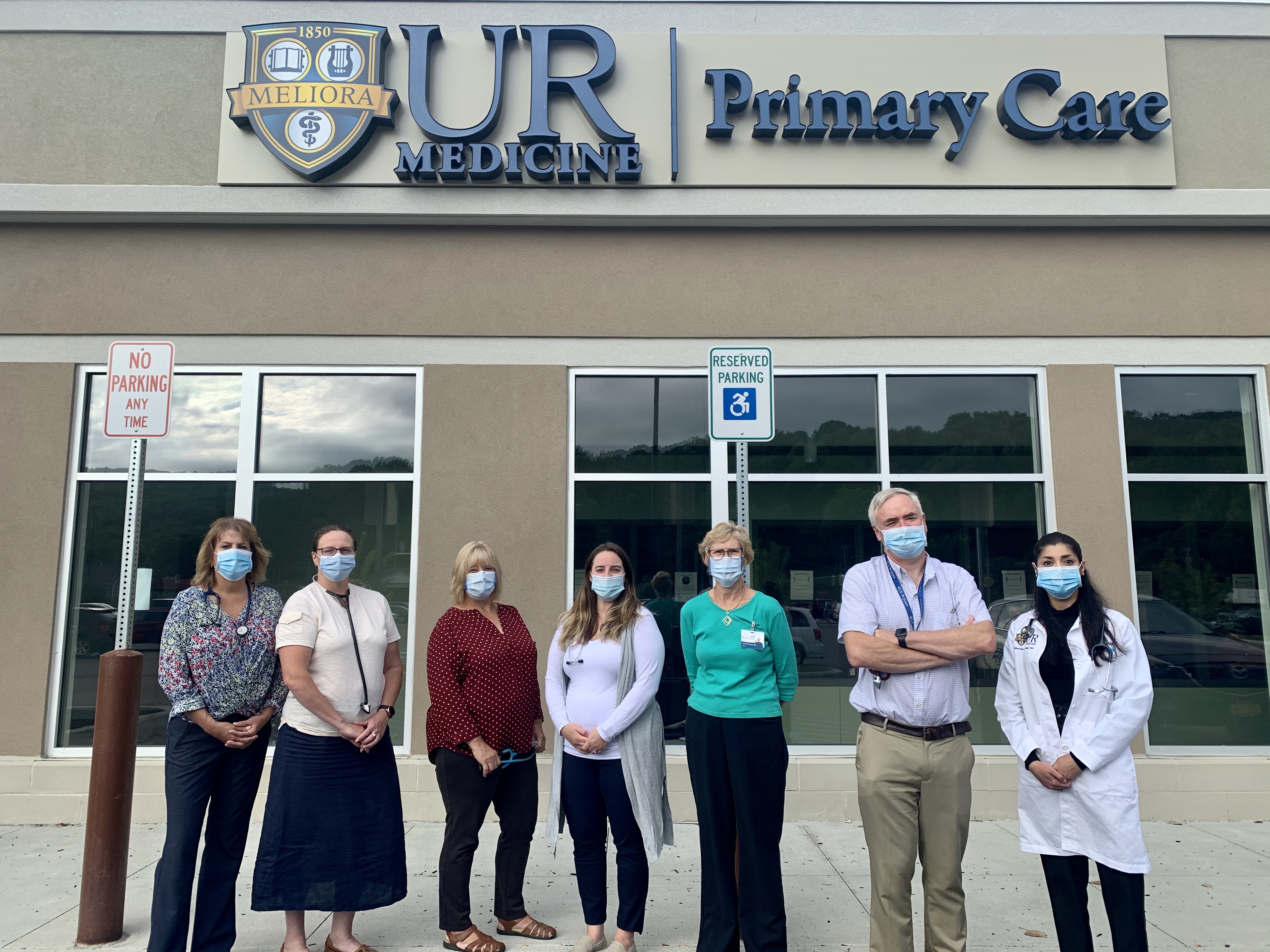
"Our team is comprised of physicians Rhonda Peterson, Adrian Ashdown and Joanne Nazareth, and advanced practitioners Kimberley Betker, Marietta Goodliff, Sharon Smith and Alicia McHale," said Tammy Criss, practice manager.
As part of St. James Hospital, the group provides patients with a proactive approach to primary care. UR Medicine was the first primary care center in the region to be Level 3 certified by the National Committee for Quality Assurance -- the highest rating for this new model of care.
"We work proactively to help keep patients healthy, not just treat them once they become sick," said Criss. "Our providers are experts in helping patients manage chronic conditions, like diabetes and heart disease, to avoid complications and unnecessary trips to the emergency room. They work closely with St. James Hospital and specialists at UR Medicine so patients can feel confident they will receive exceptional care for the whole family."
In addition to providing excellent care, St. James Primary Care is supported by the area's most advanced medical records system.
"Our system tracks health issues for each patient so that your provider can remind you when you need preventive care, such as a mammogram or colonoscopy," said Criss. "This allows us to spend more time with patients, and ultimately have a more positive impact on their health."
UR St. James Primary Care is open weekdays at 8am, with late appointments available on Tuesday and Thursday. To inquire about becoming a new patient please call (607) 385-3700.
Think Pink Screening Day
Friday, September 25, 2020
In celebration of Breast Cancer Awareness Month St. James Hospital and Cancer Services Program are hosting a Think Pink Screening Day on Saturday, October 24 from 9am -- 1pm at the Women's Imaging Center, 7309 Seneca Rd., Suite 113, Hornell.
This event is geared toward women who are due for a screening mammogram but are too busy during the regular work week. To register for a ½ hour mammogram appointment call (607) 247-2218. Health insurance is not required, and there are no co-pays for a screening mammogram.
In addition to mammograms, St. James staff will also offer free clinical breast exams (CBE) at the event for eligible patients. CBE a physical exam that can detect lumps that might require more testing. Patients who are not due for their screening, have not had a CBE in a year, or are not eligible for a mammogram based on age are eligible for the free clinical breast exam. To schedule a CBE please call (607) 385-3900.
All Think Pink Screening Day participants will receive a goodie bag and be eligible to win gift baskets, door prizes and gift cards. The Cancer Services Program will have an educational display with health and insurance information.
For safety purposes, all participants are asked to wear a mask and answer COVID questions at the door.
In support of Breast Cancer Awareness Month, throughout October all St. James mammogram patients will receive a goodie bag and be eligible for a weekly drawing.
St. James Hospital's Women's Imaging Center is fully accredited and offers the latest technology, including 3D breast imaging, in a warm and comfortable environment. Cancer Services Program provides uninsured men and women access to breast, colon and cervical cancer screening and services -- for (607) 385-3933 for information.
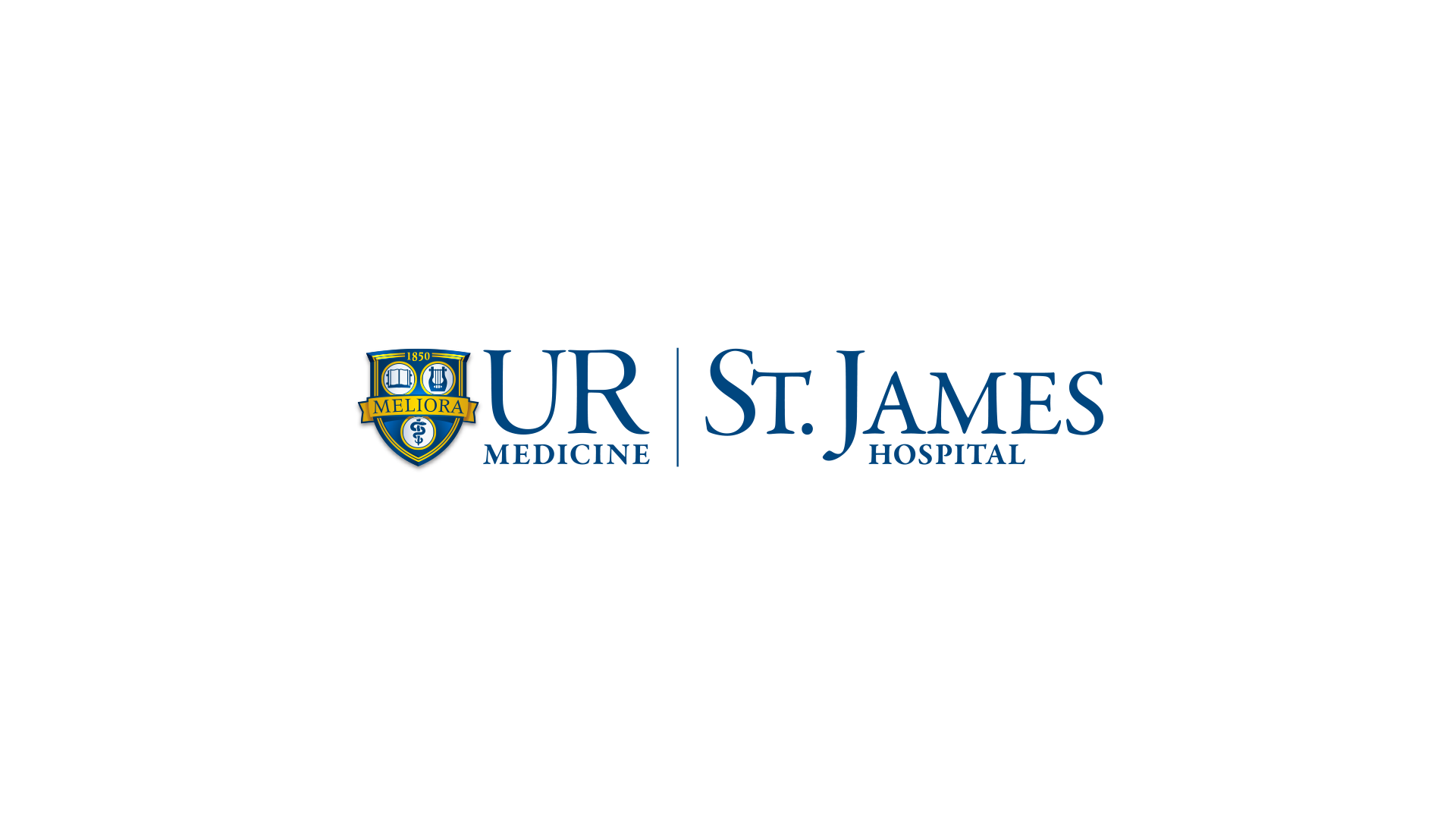
Shick Family Charity Golf Classic Raises $10,400 for St. James Foundation
Wednesday, September 9, 2020
Twenty-one teams and many Shick family members gathered at Hornell Golf Club on August 14 for the 6th annual Shick Family Charity Golf Classic, which raised $10,400 for St. James Foundation. This doubles the proceeds from last year's event.
"In 2019 we raised approximately $5,200 for St. James Foundation," said Becky Shick, tournament organizer. "This year exceeded our expectations, and we were humbled by the great turnout and generosity of our sponsors and players."
"We are extremely grateful to the Shick family," said Bryan O'Donovan, St. James president and CEO. "An event of this magnitude takes enormous planning and effort, and is an amazing example of the community's support of St. James Hospital and the patients we serve."
The Shick Family Charity Golf Classic started in 2014 to honor the family matriarch, Anita Shick. Anita, who attended this year's event, has proudly led the family since the passing of her husband, William D. Shick, in 1974 at the age of 45.
"St. James Hospital has been integral to our family for generations," said Becky. "Our mom's sister was part of the first graduating class of the St. James School of Nursing, my brother Dave met his wife Pat while she attended and graduated in the early 1970's, and our parents and siblings have been cared for at the hospital -- so our family unanimously agreed that we wanted to support St. James in this way. The Shick Family Charity Golf Classic has since grown into a tremendously successful event. We sure have come a long way since our first tournament with twelve foursomes where we raised $2,000."
In spite of social distancing restrictions, the tournament was enjoyable for all.
"It was different than previous years, but we were able to maintain all safety measures while providing a pleasant experience," said Becky. "We thank the staff at Hornell Golf Club, who worked closely with us
to safely accommodate all the players and volunteers on the course and in the facility. We also thank St. James Hospital for its support and for providing volunteers Autumn Snyder, Megan Small, Logan Peck, Carmen Wilkins and Kate Kreger."
Tournament awards were presented as follows:
- 1st place team with a score of 55: Transit Air in Hornell -- Mike Nisbet, Rich Argentieri, Mike Smith and Rich Young
- 2nd and 3rd place teams with scores of 57:
- 2nd place -- Todd Sullivan, Michael Muller, Shane Murray and John Forsythe
- 3rd place -- Chris Davis, Ted Halpin, Bill Headly and Tom Mayo
- Men's longest drive: Rich Argentieri
- Women's longest drive: Lisa Schwartz
- Men's closest to the pin: Josh Canfield
- Women's closest to the pin: Carmen Wilkins
- Putting contest: Craig Thomas
"We're already planning the 2021 event and look forward to partnering with St. James once again," said Becky.
Pictured from left to right: St. James President & CEO Bryan O'Donovan, Becky Shick, family matriarch Anita Shick with the check, Martha Wraight and Joe Shick.
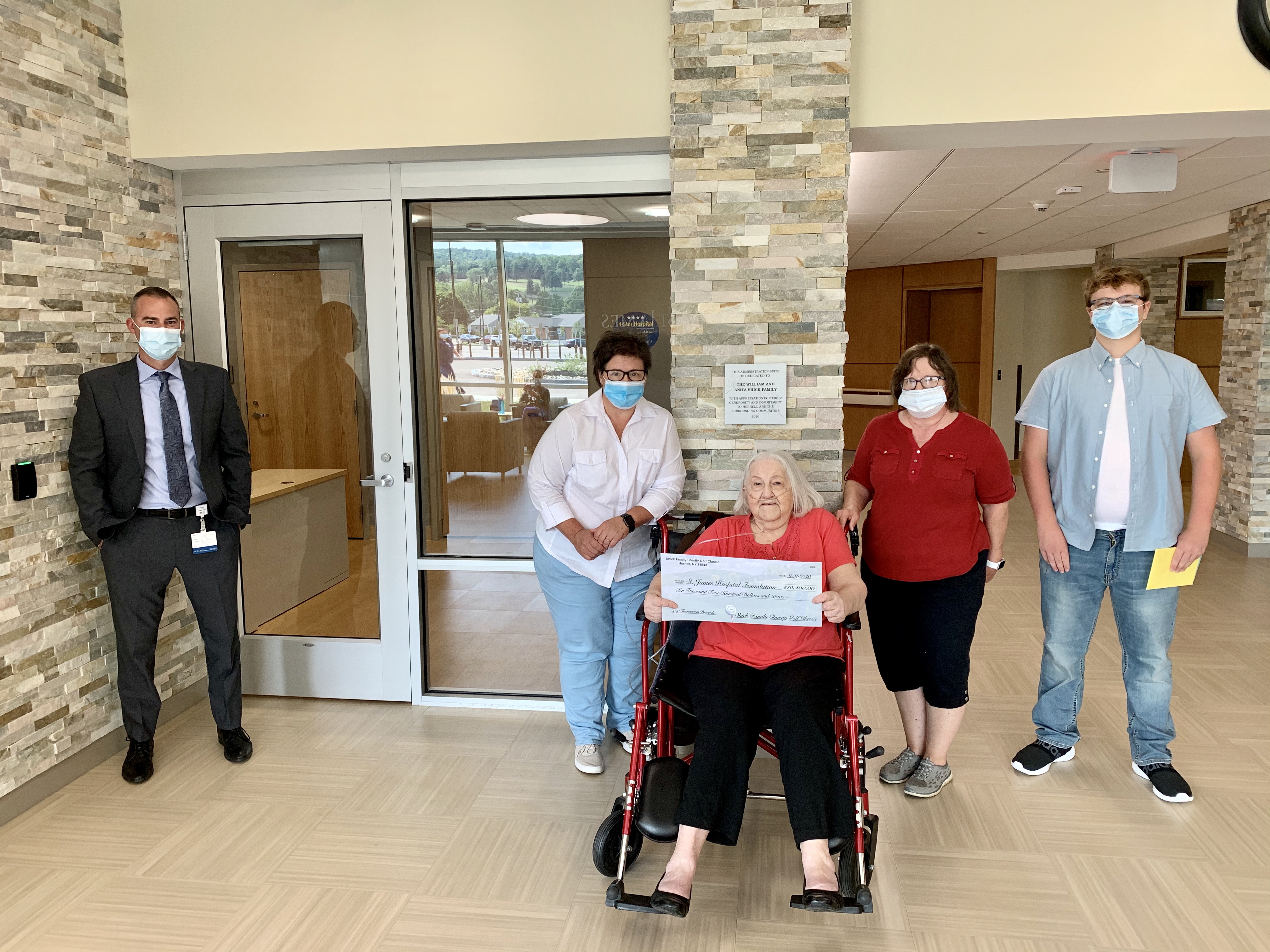
St. James Urgent Care Announces Back-to-School Hours
Thursday, August 20, 2020
Just in time for the start of school, St. James Hospital is pleased to announce later hours for its Urgent Care center at 7309 Seneca Rd., Suite 103. Starting Tuesday, September 1, Urgent Care will be open 10am -- 8pm, seven days a week.
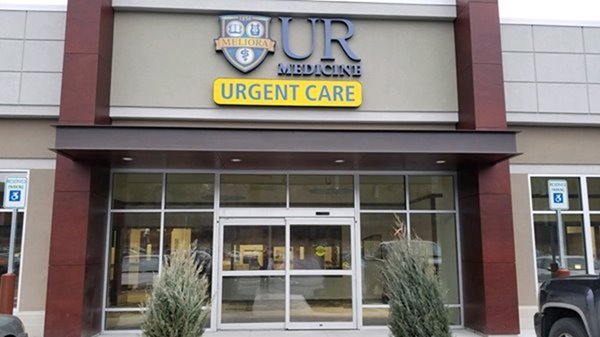
"During the school year, it's often more convenient for community members to seek care later in the day," said Bryan O'Donovan, president and CEO. "We have the ability to be flexible with Urgent Care hours based on the community's needs."
St. James Urgent Care provides non-emergency services to children and adults. No appointment is needed, and on-site lab and x-ray services are available. The center also offers school and sports physicals.
"Although patients should always seek care first from their primary care provider, Urgent Care is convenient and ideal should you or your family member need to be seen immediately or after hours," said O'Donovan.
Conditions that are treated at Urgent Care include but are not limited to:
• Coughs, colds and earaches
• Flu symptoms
• Minor lacerations and burns
• Urinary tract infections
• Rashes and skin conditions
• Allergies
• Sports injuries
• Animal and insect bites
• Fractures, strains and sprains
• COVID testing (for those who meet the criteria -- call for details)
"Anyone who comes to Urgent Care can be assured that all the safety precautions are in place," said O'Donovan. "These include universal masking, social distancing in the waiting room, and use of personal protective equipment. As an added precaution we encourage people to call ahead if possible to discuss their symptoms (385-3800), to help space out the patient flow and expedite their visit."
Urgent Care is located at 7309 Seneca Rd., Suite 103. For more information call (607) 385-3800 or visit StJames.urmc.edu.
UR Medicine/St. James Hospital Partially Lifts Inpatient Visitor Restrictions on June 25th
Thursday, June 25, 2020
June 24, 2020…The state Department of Health (DOH) has issued guidance to allow hospitals to resume limited visitation. As of June 25 at 10am, UR Medicine/St. James Hospital will partially lift its inpatient visitor restrictions, under the direction of the DOH and UR Medicine that includes a limited number of visitors and rigorous screening and safety protocols.
"We know that not being able to visit hospitalized loved ones has been difficult for patients and families and we are eager to let people visit in person," said Bilal Ahmed, M.D., St. James Hospital chief medical officer. "We now have clearance to restore limited visitation, with stringent safety precautions to keep the risk of infections low as more people enter the hospital."
In accordance with NYS Department of Health guidelines, St. James Hospital is implementing stringent safety precautions to keep the risk of infections low as more people enter the hospital.
Visitation for Inpatients: Each hospitalized patient will be able to designate 2 individuals 18 years of age or older who will be allowed to visit. Only one person will be permitted to visit per day, for up to 4 consecutive hours anytime from 10am to 4pm. Individuals over 70 years of age are discouraged.
Exceptions:
Pediatric Patients -- 2 guardians can be designated, however, only one parent may be present at a time with no time limitations. Parents are permitted to switch as needed throughout the hospitalization.
Patients for whom a support person is deemed essential to care -- for patients with intellectual and/or developmental disabilities, and patients with cognitive impairments including dementia, 1 support person may be identified and present with no time limitations.
End-of-Life Patients -- Patients in imminent end-of-life may have 2 individuals visit the patient together.
Patients hospitalized with COVID -- No COVID-19-positive patients may have visitors unless they meet one of the other outlined exceptions.
Visitation for Surgical Patients: One visitor is allowed for pre-op check-in and at discharge. Exceptions include patients for whom a support person is deemed essential to care due to intellectual and/or developmental disabilities, cognitive impairments including dementia, and any patients facing imminent end of life.
Visitation for Emergency Department Patients: The current 'No visitors' policy in the Emergency Department will stay in effect due to safety precautions. ED space does not allow for necessary social distancing if visitors are present. Exceptions to this policy in ED include patients for whom a support person is deemed essential to care due to intellectual and/or developmental disabilities, cognitive impairments including dementia, and any patients facing imminent end of life.
For the safety of patients, staff and visitors, all visitors will be expected to adhere to the following guidelines:
Screening Process -- Upon arrival to the hospital, all visitors and support persons will be screened in the lobby and then have their temperature taken upon arrival to the inpatient unit. If at any point an individual is identified to have symptoms, they will be asked to leave the hospital unless their loved one's death is imminent.
Masking -- All visitors and support persons are to be masked throughout the hospital and asked to remain masked in the room during their visit.
Remain with Your Loved One -- To minimize exposure for everyone, visitors and support persons MUST stay with their patient continually and are not to leave the patient's room. Please note --
this includes leaving to smoke.
Leaving the Hospital -- When visitors and support persons leave to go home, we expect that he or she will continue to consistently observe masking, social distancing and handwashing hygiene.
"We want people to rest assured that we will continue providing your loved one with compassionate, patient-centered care at all times, and recommend utilizing technology to keep in touch with family and friends who cannot visit," said Dr. Ahmed. "Our visitation guidelines will be revisited routinely, and may change at any time based on the current risk surrounding the spread of COVID-19."
A summary of the visitation restrictions can be found at www.urmc.rochester.edu/st-james/visitor-restrictions.
St. James Visitation Updates Coming Soon
Friday, June 19, 2020
UR Medicine/St. James Hospital is eager to allow patients to have visitors while in the hospital. Plans are underway to restore limited visitation, with stringent safety precautions to keep the risk of infections low as more people enter the hospital.
We have received official guidance from the Department of Health, and are moving as quickly as we can to implement and communicate expanded visitation options. We appreciate the understanding of families, and thank our care teams for supporting patients so well and keeping loved ones in touch while in-person visitation remains limited.
St. James Urgent Care Announces Summer Hours
Friday, June 12, 2020
Officials at St. James Hospital are pleased to announce convenient summer hours for its Urgent Care center at 7309 Seneca Rd., Suite 103. Starting Monday, June 15, the service will be open 8am -- 6pm, seven days a week.
"We realize people are busy during the summer, and having the ability to get their care earlier in the day is a great convenience," said Bryan O'Donovan, president and CEO.
St. James Urgent Care provides non-emergency services to children and adults. No appointment is needed.
"Although patients should always seek care first from their primary care provider, Urgent Care is convenient and ideal should you or your family member need to be seen immediately or after hours," said O'Donovan. "If you have more serious symptoms like chest pain, shortness of breath, or serious bleeding you should go directly to the hospital emergency department."
Conditions that are treated at Urgent Care include but are not limited to:
• Coughs, colds and earaches
• Flu symptoms
• Minor lacerations and burns
• Urinary tract infections
• Rashes and skin conditions
• Allergies
• Sports injuries
• Animal and insect bites
• Fractures, strains and sprains
Digital X-ray and labs services are available onsite. The center also offers school and sports physicals.
"Anyone who comes to Urgent Care can be assured that all the safety precautions are in place," said O'Donovan. "These include universal masking, social distancing in the waiting room, and use of personal protective equipment. As an added precaution we encourage people to call ahead if possible to discuss their symptoms (385-3800), to help space out the patient flow and expedite their visit."
The new Urgent Care hours will be in effect until the end of summer. In addition, the walk-in x-ray services 7309 Seneca Rd., Suite 103 will have summer hours of 8am -- 6pm, seven days a week. For more information call (607) 385-3800 or visit StJames.urmc.edu.
St. James Hospital and Jones Memorial Hospital Welcome New ENT/Otolaryngologist
Tuesday, May 19, 2020
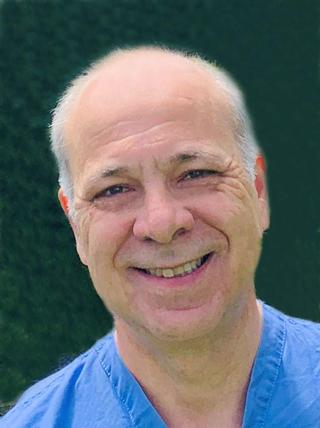
Leadership at St. James Hospital and Jones Memorial Hospital are pleased to welcome ENT/Otolaryngologist, Bulent Mamikoglu, M.D., effective June 1, 2020.
Dr. Mamikoglu will provide general ear, nose and throat services for children and adults. He has clinical interests in dizziness/vertigo (Meniere's disease, vestibular neuronitis, benign paroxysmal positional vertigo/BPPV). He also treats infections, tonsils, allergies, nasal and sinus conditions, tinnitus, and snoring, and inserts ear tubes. Additionally, he treats chronic ear conditions including hearing loss and chronic ear diseases. He offers surgical and non-surgical treatments of ear, nose and throat diseases.
Dr. Mamikoglu will have a clinic in Hornell and Wellsville, and do surgical procedures at both hospitals.
"I am excited to join a hospital network with strong leadership that works together for the health and well- being of the community," said Dr. Mamikoglu. "It is a great feeling to be able to contribute my skills to work with hospitals that truly make patient care a priority. My wife and I have both have been made to feel we are a welcome addition to the Southern Tier region and it is greatly appreciated."
Dr. Mamikoglu completed a residency in Otorhinolaryngology at University of Marmara Hospital (Istanbul), and fellowships in Rhinology at University of Chicago Hospitals and in Otology Neurotology at Northwestern University Medical School. He has provided ENT and surgical services at River North Surgery Center (Chicago), Randolph County Medical Center (Arkansas), Chicago Dizziness and Hearing Center, and Illinois Valley Ear, Nose and Throat Associates. He joined UR Medicine's ENT/Otolaryngology team in May 2020.
"My philosophy of care is simple. First and foremost, I believe great care involves truly listening to the patient without interrupting, so that a correct diagnosis is made initially," he said. "Kindness and a sense of humor help patients feel more comfortable. I believe in having compassion for the patients and staying up to date on advancements in the medical field by attending seminars, reading and conferring with colleagues on various medical topics of interest and relevance to my medical practice. My goal is to constantly improve my skills as a physician in order to better serve my patients."
Patients need a referral from their primary care physician, and appointments can be made at St. James Hospital, (607) 385-3820, and Jones Memorial Hospital, (585) 758-5700.
St. James Hospital Supports ROC-COVID Regional Health Screening Initiative
Friday, May 15, 2020
St. James Hospital has joined other UR Medicine affiliates in supporting the ROC-COVID project, a cooperative health-screening initiative from the University of Rochester, Rochester Regional Health System, Common Ground Health and other organizations. ROC-COVID is designed to help healthcare and community leaders evaluate how efforts to control the spread of COVID-19 in the region are working.
Developed by scientists and information technology staff from the University of Rochester Medical Center and Rochester Regional Health, ROC-COVID is a simple web-based tool to collect health information from volunteers in Steuben, Livingston, Allegany, Chemung, Genesee, Monroe, Ontario, Orleans, Schuyler, Seneca, Wayne, Wyoming and Yates counties.
Participants provide their zip code and respond to a simple daily online survey that includes questions about their health (i.e. do they have a dry cough, running a fever over 100F, or have a sore throat).
The data collected will be securely housed by Common Ground Health, a regional health planning organization. The analysis will help healthcare and community leaders evaluate how well social distancing protocols are working and where there might be flare-ups, and some communities may be offered testing as a result of the data collected.
The only required identifier is the participant's zip code. Optional information includes basic demographic questions and the option for daily reminders. Individual participants will not be tracked.
Anyone interested in participating can go to ROCCOVID.org for more information or to sign up for the online survey tool.
St. James Hospital Welcomes New Pain Management Specialist
Wednesday, May 13, 2020
St. James Hospital is pleased to welcome UR Medicine pain management specialist, Gabriel Yacob, M.D., effective June 3, 2020.
Dr. Yacob offers non-invasive and invasive treatments of neck and back pain, headaches and facial pain, cancer-related pain, complex regional pain syndromes, nerve injuries and neuropathy, pain of the joints, chest and abdomen, sports injuries, neuralgia and shingles pain, and related neuromedicine conditions.
"We are delighted to bring Dr. Yacob to our affiliates in the Southern Tier," said Webster Pilcher, M.D., chair of URMC neurosurgery. "He will offer in-person and telemedicine appointments and do procedures at St. James Hospital, Noyes Health and Jones Memorial Hospital, expanding access to local pain management services in that region."
Board-certified by the American Board of Anesthesiology as well as in the subspecialty of pain management, Dr. Yacob received both his Medical Doctorate and his Masters in clinical pathology from Cairo (Egypt) University School of Medicine. He completed a Residency in clinical pathology at Kasr-El Aini School of Medicine/Cairo University Hospitals; one in internal medicine at New York Methodist Hospital and Sloan Kettering Center Center/Weill Cornell Medical College (New York); and one in anesthesiology at Brookdale University and Staten Island University Hospitals (New York). Dr. Yacob did his Fellowship in pain management at University of Pittsburgh Medical Center.
Dr. Yacob has held positions as a staff anesthesiologist at Ambulatory Surgery Center (Brooklyn), director of pain management at Olean General Hospital (Olean, NY), and assistant professor in anesthesiology at University of Texas Medical Branch (Galveston). He joined UR Medicine's neurosurgery team in April 2020.
"I am excited to come back to the Southern Tier to serve patients in this region," he said. "There are many types of pain that can be effectively treated, to help people live a better quality of life."
Patients need a referral from their primary care physician, and appointments can be made at St. James Hospital (607-385-3850), Noyes Health (585-243-0150), and Jones Memorial Hospital (607-385-3850).
St. James is Now Resuming Outpatient Cardiac Services, Including Stress Tests and Cardiac Rehab
Monday, May 11, 2020
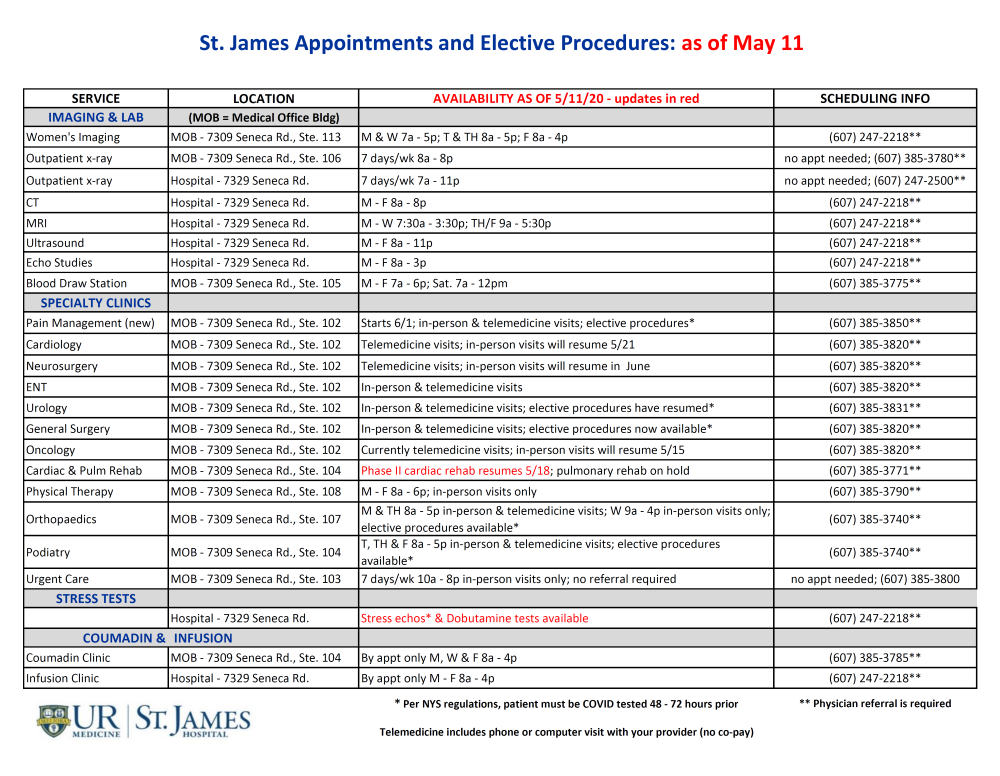
Your safety is our #1 priority. We take all the necessary precautions including:
- On-site screening of all individuals
- Universal masking and use of PPE
- Limited points of entry
- Reconfigured waiting rooms and work space for social distancing
- Staggered scheduling
- Limited number of visitors accompanying patients
- Additional precautions based on the procedure or appointment
- COVID testing of patients 48--72 hours prior to exercise stress tests or surgical procedures
St. James Hospital Updates Elective Procedures Information
Wednesday, May 6, 2020
With the reopening of elective appointments and procedures, St. James Hospital has specific scheduling information to share with patients.
"Virtually all of our outpatient services are now reopened," said Bilal Ahmed, M.D., St. James Hospital chief medical officer. "This includes imaging studies, colonoscopies, endoscopies, outpatient surgeries, physical therapy, and specialty appointments. We have published our current scheduling, which is designed to keep patients and staff safe.
"It is very important for patients who have been waiting to reestablish their relationship with the healthcare system. This will help prevent complications or a continued decline of their health," said Dr. Ahmed. "During this time our #1 priority is -- and will continue to be -- patient and staff safety."
Safety protocols include pre-visit and on-site screening of all individuals, universal masking, limited points of entry to clinics and the hospital, reconfigured waiting rooms and work space for social distancing, use of personal protective equipment, scheduling that promotes social distancing, and continued use of telemedicine appointments where appropriate.
"In addition, we will call patients in advance to ask if they have symptoms, limit visitors accompanying patients, and take additional precautions if needed based on your procedure or appointment," said Dr. Ahmed. "Per NYS regulations, we are also required to COVID test all patients three days prior to their procedure -- this is for the safety of everyone involved. We look forward to continuing to take care of our community."
Hornell Elks Lodge Contributes $2,000 to Purchase Personal Protective Equipment for St. James Hospital
Friday, May 1, 2020
Patients and staff at St. James Hospital will have access to more safety supplies during the COVID-19 pandemic, thanks to a $2,000 donation from Hornell Elks Lodge 364 to purchase Personal Protective Equipment (PPE). The Hornell Elks recently applied for and received a Gratitude Grant, which has been earmarked for purchasing PPE for St. James.
"We wanted to do something to help meet the immediate needs at the hospital," said Cindie Harrington, Hornell Elks Lodge Esteemed Loyal Knight and retired St. James employee. "During this pandemic the need for PPE is more significant than ever. I worked in the St. James emergency department for twenty-two years, and understand how important it is to keep patients and staff safe."
St. James will use the donation to supplement its supply of protective masks, gloves and gowns. The hospital recently implemented "universal" masking, wherein every person who comes through the door must be masked.
"The community's generosity during the pandemic has been astounding," said Bryan O'Donovan, St. James president and CEO. "We are so grateful to the Hornell Elks Lodge for directly supporting the safety of our patients and staff."
"We were pleasantly surprised at how quickly our grant application was approved," said Cindie. "The grants committee at the national office turned it around within a week, an indication of how the Elks organization has responded to the pandemic and to communities in need."
Founded in 1868, the Benevolent and Protective Order of Elks of the USA is a fraternal organization dedicated "…to promote and practice the four cardinal virtues of Charity, Justice, Brotherly Love and Fidelity; to promote the welfare and enhance the happiness of its members; and to quicken the spirit of American Patriotism and cultivate good fellowship" in their local communities. Lodge 364 has been serving Hornell since 1897.
CEO Bryan O'Donovan Discusses the Reopening of Elective Services at St. James
Thursday, April 30, 2020
Two New Emergency Medicine Physicians Join St. James Hospital
Thursday, April 30, 2020
Leadership at St. James Hospital is pleased to introduce two new physicians in the emergency department. UR Medicine physicians Dr. Taras Gulyanich and Dr. Patrick Dacquel joined the St. James medical staff in April to provide fulltime service in the ED.
"We are delighted to welcome these highly skilled clinicians to our team," said John Robshaw, M.D., chief of St. James emergency services. "They bring a wealth of emergency medicine expertise, and their presence is even more important as we continue to address the COVID-19 pandemic."
Dr. Taras Gulyanich began his career as a nurse in Rochester, graduating with a BS in nursing from St. John Fisher College. He obtained a Doctorate from Lake Erie College of Osteopathic Medicine, and completed his Fellowship in emergency medicine at St. Elizabeth Hospital (Utica, NY). Dr. Gulyanich did Residencies in internal medicine at LewisGale Hospital (Blacksburg, VA) and at Good Samaritan Hospital, (Watertown, NY), and a Residency in pathology at University of Medicine & Dentistry of New Jersey (Newark, NJ). He has worked in emergency medicine at McLeod Hospital (Dillon, SC), and in internal medicine at St. Peter's Health Partners (Albany, NY) and Community Memorial Hospital (South Hill, VA).
"Dr. Gulyanich has extensive experience diagnosing and treating individuals with escalating chronic conditions, which is typical of the type of patient we see in our emergency department," said Dr. Robshaw.
Dr. Patrick Dacquel completed a BS in molecular and cell biology from Pacific University (Forest Grove, OH). He obtained a MA in bioethics from Kansas City (MO) University of Medicine and Biosciences, where he went on to obtain a Doctorate in osteopathic medicine. Dr. Dacquel completed his Residency in emergency medicine at Drexel University/College of Medicine at Hahnemann Hospital (Philadelphia), and worked in the emergency departments at Mercy Fitzgerald Hospital (Philadelphia) and Evangelical Community Hospital (Lewisburg, PA). He also served as assistant EMS director/tactical medical operator at Delaware County (Darby, PA).
"Dr. Dacquel is well-versed in both rural and urban emergency medicine," said Dr. Robshaw. "He understands the needs of our population and is a great fit with our team."
In addition to the two new physicians, St. James also recently appointed Aimee Smith, RN, BSN, as the new emergency department manager.
"Aimee brings great experience to our emergency department and has provided excellent leadership during the COVID-19 pandemic," said Dr. Robshaw. "We have an outstanding and compassionate team of clinicians, technicians, registration and support staff who are delighted to provide the highest level of emergency care and support to our patients and the community."

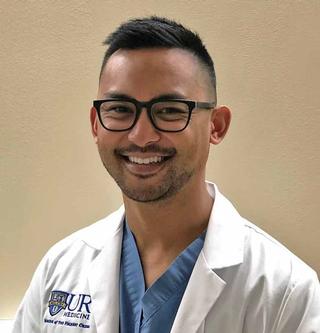
St. James Hospital welcomes new emergency medicine physicians, Taras Gulyanich, D.O. (left) and Patrick Dacquel, D.O.
Safety Precautions for Outpatient Appointments: We've Got You Covered
Thursday, April 23, 2020
St. James is pleased to announce that we are rescheduling imaging procedures, elective surgeries, PT visits, and specialty appointments!
Your safety is our #1 priority. Here are the steps we are taking to keep you safe during your visit:
- We will call you in advance of your appointment to ask if you have any symptoms.
- We are still limiting access in our buildings and screening everyone (staff and patients) at the entrance.
- All doctors, nurses and staff in our clinics are wearing masks, and we'll also provide a mask to you when you arrive if you don't have one.
- We also require all of our employees to screen themselves for symptoms daily before they come into work, and we'll screen you for symptoms the day of your visit.
- We are following meticulous infection control practices, including disinfection, wearing gloves, and hand washing.
- We are limiting the number of visitors accompanying patients, and have rearranged and/or removed furniture in our waiting rooms to enforce strict social distancing practices. For added safety, you have a driver please have that person wait in the car.
- We're also being careful about who we ask to come for in-person appointments, and when possible are using telemedicine to reduce the number of patients coming to our practices at the same time.
Your provider might have some additional precautions, which the staff will discuss with you in advance.
We know that COVID-19 is likely to be in our community for many months. We don't want you to delay your visits and possibly get sicker or have complications, so it's much safer for you to receive the care you need now.
If you have any questions or concerns, call the provider office where your appointment is scheduled, or call our infection prevention manager at (607) 247-8106 (email Tracy Harvey).
St. James Hospital Announces Reopening of Elective Outpatient Procedures
Thursday, April 23, 2020
NYS Governor Cuomo has announced that elective outpatient treatments and surgeries can resume in certain counties and hospitals. St. James Hospital has been given the appropriate approval to begin scheduling elective procedures and appointments, starting April 28.
"We are pleased to begin providing elective services such as imaging studies, colonoscopies, endoscopies, outpatient surgeries, physical therapy, and specialty appointments," said Bilal Ahmed, M.D., St. James Hospital chief medical officer. "Some patients have been waiting for care since mid-March, and a continued delay may cause a further decline of their health. We will increase our ambulatory volume beginning Tuesday to meet our community's health care needs."
"We will take a phased-in approach to ensure staff and patient safety," said Bryan O'Donovan, president and CEO. "Safety is -- and will continue to be -- our #1 priority."
Safety protocols include pre-visit and on-site screening of all individuals, universal masking, limited points of entry to clinics and the hospital, reconfigured waiting rooms and work space for social distancing, use of personal protective equipment, scheduling that promotes social distancing, and continued use of telemedicine appointments where appropriate.
"In addition, we will call patients in advance to ask if they have symptoms, limit the number of visitors accompanying patients, and take additional precautions if needed based on your procedure or appointment," said Dr. Ahmed.
Patients who have been waiting for elective procedures and appointments at St. James will be contacted directly by their provider to schedule an appointment.
"This is a positive step in continuing our mission of providing the Hornell area with the vital health services they need," said O'Donovan. "Our medical staff and team members are excited about seeing their patients and taking care of our community."
St. James Physicians Urge the Community to Not Delay Medical Care Out of Fear of COVID-19
Tuesday, April 21, 2020
Physicians at St. James Hospital urge the public to continue to seek guidance and care for all of their medical issues during the pandemic.
"We are seeing [non-COVID] patients come through our emergency department and urgent care center who are much sicker than usual," said Bilal Ahmed, M.D., St. James Hospital chief medical officer. "That is very concerning to us."
Fear about the spread of COVID-19 has raised concerns among the public about leaving their homes and led hospitals to cancel most non-essential services and procedures.
"Although we have postponed most non-essential appointments, that doesn't mean people with serious or worsening health concerns should delay getting medical care," said Dr. Ahmed. "Often these issues can escalate into an emergency, which we want to avoid. And we are continuing to do emergent surgeries and procedures for patients who need that level of care."
Dr. Taras Gulyanich, D.O., emergency medicine physician at St. James, agrees that people with warning signs should not delay seeking immediate help.
"Although we have the virus in our community, there are diseases that need to be immediately addressed, especially chest pain and severe abdominal pain, or if you're not feeling well in-general. If you have any conditions that are warning you, we encourage you to visit our ER."
Dr. Ahmed explained that there's a fine line between essential and non-essential care.
"We've been sending the message that it's best to stay home, so it's understandable that patients may be delaying their care. Our physicians are worried that with these delays, patients are arriving with advanced stages of disease, especially those with chronic conditions like diabetes, hypertension or cardiovascular disease."
St. James providers are continuing to care for all types and levels of health issues.
"We've been dealing with coronavirus, but at the same time we're taking care of patients with other complex issues," said St. James hospitalist, Sachin Manthuruthil, M.D. "We have protocols in place to keep our coronavirus patients separate from others. So if you do have a medical concern, I'd advise you to contact your primary care physician's office and ask for advice on whether an evaluation in our emergency department is warranted. Do know that when you come to St. James, your health and safety is our highest priority."
The outpatient clinics at St. James have a variety of ways to keep in touch with their patients.
"With all the attention on COVID-19 people tend to forget that chronic illnesses need to be kept under evaluation," said Adrian Ashdown, M.D., UR Medicine Primary Care Hornell. "We do that one of three ways -- by telephone, via computer or smart phone, and even at this time we're still seeing patients in the office. We take every precaution to keep them isolated from other people. It's perfectly safe to come to the office if you are invited to do so, because some conditions are best evaluated in person rather than over the telephone."
If you or your loved one's health issues escalate, get immediate help, said Dr. Ahmed.
"If you have chest pain, trouble breathing, slurred speech, an eye injury, seizure, or severe bleeding, call 911 or come directly to the emergency department. We have a triage system to isolate potential COVID patients from all other patients, so you don't have to worry about sharing the waiting room or treatment area with someone who might have the virus."
In addition to the triage protocols, St. James has safeguards in place throughout both facilities.
"Early on we implemented strict safety measures including limiting access at both buildings, screening all staff and patients at the door, masking everyone, installing more hand sanitizer stations, increasing cleaning and sanitizing regimens, and restricting visitors," said Dr. Ahmed. "You can rest assured that you will be safe in our buildings."
He reiterates that patients shouldn't put off their medical care out of fear of COVID-19.
"We're here to take care of all of your health concerns, and want to help you keep them from escalating. If you or a loved one is sick, call your doctor for advice. You don't have to manage it on your own. If we all work together, we will be able to stay healthy and keep others in our community healthy as well."
St. James Hospital CEO Bryan O'Donovan and Dr. Ismail Mehr encourage the public to keep up with medical care during the COVID-19 pandemic
Thursday, April 16, 2020
CEO Bryan O’Donovan and Drs. John Robshaw and Ismail Mehr: Updating the Community on St. James’s Response to COVID-19
Thursday, April 2, 2020
Mayor Buckley and UR Medicine/St. James Hospital Strongly Urge Community to Social Distance Amid Growing Local COVID-19 Cases
Tuesday, March 31, 2020
As the number of confirmed COVID-19 cases grows in Hornell and surrounding communities, with several patients hospitalized at UR Medicine/St. James Hospital, local officials implore the community to take every precaution to social distance.
"We now have several patients on our inpatient unit who are COVID-19 positive," said St. James president and CEO, Bryan O'Donovan. "We need the community to continue take this public health crisis seriously, to prevent further cases."
Hornell Mayor John Buckley concurs.
"Now more than ever it's imperative that people stay home and only go out to get the bare essentials, to minimize their exposure," he said. "We know it's difficult, but this situation is going to get worse before it gets better, and we want people of Hornell and surrounding communities to heed all precautions."
Physicians at St. James Hospital are seeing more confirmed cases and treating those patients, as well as non-COVID-19 patients.
"We have enough PPE and staff to take care of the patients we have," said Ismail Mehr, M.D., "but we do not want those numbers to climb dramatically. Our community must do everything they can to avoid getting COVID-19, the best way of which is to stay home."
John Robshaw, M.D., oversees the St. James emergency department, and conveys the same message.
"We are taking all precautions to keep our staff and patients safe, including masking everyone as they come into the building," he said. "Anyone with severe symptoms -- such as shortness of breath and high fever -- should go to the emergency department for a higher level of care, and if possible should call in advance (607-247-2300)."
People are urged to follow the guidelines -- frequent hand washing, cough/sneeze into a tissue or inside of your elbow, self-quarantine for mild symptoms, and especially, social distancing.
"We are continuing to take care of all patients who come through our door to include COVID-19 positive patients, as well as doing essential surgeries," said O'Donovan. "We cannot stress enough that social distancing works, and we ask the community to share the message."
WLEA Interview with CEO Bryan O'Donovan and Drs. Izzy Mehr and John Robshaw: St. James Response to COVID-19
Thursday, March 26, 2020
St. James Hospital/UR Medicine Implements New Directives in Response to COVID-19 Pandemic
Wednesday, March 25, 2020
In light of the growing number of confirmed COVID-19 cases, St. James Hospital has implemented new directives as recommended by UR Medicine and New York State Department of Health. The hospital also developed a surge plan to address and prepare for the potential increase of COVID-19 patients.
- The main entrance of the hospital is closed indefinitely, to limit traffic in and out of the building. All patients and staff are required to enter through the emergency department, where they will be screened.
- A new triage process has been implemented in the emergency department to reduce potential exposure to staff and patients. If possible, people are asked to call ahead to the emergency department at (607) 247-2300.
- All elective surgeries, procedures and non-essential outpatient visits at St. James will be postponed until May 1.
- The no-visitors policy will be extended through May 1. Exceptions include one visitor for pediatric inpatients or special circumstances.
"We are taking every measure possible to minimize exposure to our patients and staff," said Bilal Ahmed, M.D., St. James Hospital chief medical officer.
Dr. Ahmed reminds the public to continue to follow the recommended safety guidelines: frequent hand washing, cough/sneeze into a tissue or inside of your elbow, social distancing, and self-quarantine for mild symptoms. He emphasizes that patients with mild respiratory symptoms should not come to the emergency department or urgent care to ask for COVID-19 testing.
"If anyone thinks they might have been exposed to Coronavirus/COVID-19 before visiting your provider's office, Urgent Care, or the Emergency Room, call the UR Medicine COVID-19 support line at 1-888-928-0011 or your health care provider. You can also contact the NYS Department of Health (888-364-3065) to determine next steps," he said. "Patients with serious symptoms are encouraged to seek a higher level of care at the emergency department."
Bryan O'Donovan, St. James president and CEO, commends his team for their efforts.
"Everyone at St. James Hospital is doing an extraordinary job of responding to this rapidly evolving situation, and we are so grateful for their efforts to keep patients and staff safe. We would also like to thank the community for following social distancing guidelines and for the tremendous number of phone calls and social media posts supporting our hospital and our team members during these challenges times."
St. James Hospital/UR Medicine Continues to Monitor and Respond to COVID-19 Pandemic
Saturday, March 21, 2020
In light of confirmation that two Steuben County residents have tested positive for COVID-19, officials at UR Medicine/St. James Hospital continue to monitor and provide guidance to protect the community.
"Everything we are doing is geared toward keeping our staff and patients safe," said Bilal Ahmed, M.D., St. James Hospital chief medical officer. "We have implemented a no-visitors policy, with the exception of one visitor for pediatric patients or special circumstances, and are rescheduling all non-essential outpatient clinic appointments and surgeries. This will help ensure that our local health system has the staff and resources it needs to care for all patients."
Dr. Ahmed emphasizes that patients with mild respiratory symptoms should not come to the emergency department or urgent care to ask for COVID-19 testing. Patients with serious symptoms are encouraged to seek a higher level of care at the emergency department.
"If anyone thinks they might have been exposed to Coronavirus/COVID-19 they should call their primary care physician or the NYS Department of Health (888-364-3065) to determine next steps," he said.
"There is a nationwide shortage of test kits and the reagents to conduct the tests, so given the limited supply we are only testing patients who have severe symptoms," stated Bryan O'Donovan, St. James Hospital president and CEO.
Due to the visitor restrictions and COVID-19 guidelines, St. James is also limiting access to its two buildings on Seneca Road, and all patients and staff will go through screening questions at the medical office building and at the hospital main entrance.
"Patients coming to the medical office building for appointments should use entrances B and C only," said O'Donovan. "We also want to remind people to self-quarantine if they have mild symptoms, practice social distancing to avoid unnecessary contact, and follow good hand hygiene."
To learn more about COVID-19 visit:
- Centers for Disease Control and Prevention (CDC)
- New York State website or its hotline at 1-888-364-3065
- UR Medicine COVID website
St. James Hospital Cuts Ribbon in Anticipation of March 17 Grand Opening
Friday, March 6, 2020
Officials from New York State, UR Medicine and St. James Hospital gathered Friday morning to cut the ribbon on the new, 87,000-square-foot hospital. Located at 7329 Seneca Rd. N. in Hornell, the new facility is nearly complete and will open for business March 17. The public was invited to an open house and tours at 1 p.m.
"Today we celebrate a new chapter in our community's history," said Bryan O'Donovan, St. James Hospital president and CEO. "This is the culmination of hard work and determination to keep quality health care right here in Hornell. It is the result of collaboration among our state and local partners, leadership at the University of Rochester Medical Center, St. James medical staff, our employees and the entire community."
The project began several years ago with a collaboration among local legislators, community members, and St. James leadership, who worked with state officials to secure $63 million in funding for the project and preserve critical health care services in Hornell. Construction began in late 2017.
"This new facility at St. James Hospital will expand services and help to ensure the best care for patients in the area," said New York State Lieutenant Governor Kathy Hochul. "We are committed to investing in projects like the UR Medicine St. James Hospital to support state-of-the-art equipment and modernized space to improve the patient experience and make sure individuals and families receive the treatment and support they need to lead healthy and safe lives."
"Today's opening provides the people of Hornell with a state-of-the-art facility, designed to improve access to quality healthcare and keep vital services available to the community," said New York State Department of Health Commissioner Howard Zucker, M.D., J.D. "This is a fine example of what can be achieved through thoughtful planning and collaboration that aims to keep communities healthy and thriving."
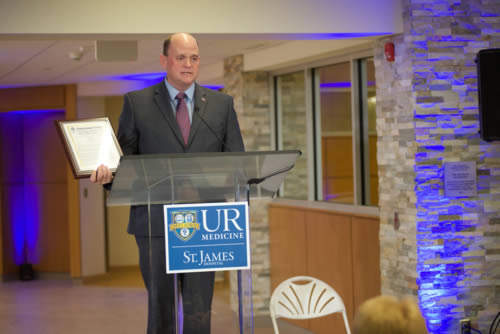 "I want to thank Gov. Cuomo, Dr. Zucker and the Department of Health, the State Legislature, and Reuben McDaniel's team at the Dormitory Authority of the State of New York," O'Donovan said. "Without the funding and their unwavering support, this project would not have come to fruition."
"I want to thank Gov. Cuomo, Dr. Zucker and the Department of Health, the State Legislature, and Reuben McDaniel's team at the Dormitory Authority of the State of New York," O'Donovan said. "Without the funding and their unwavering support, this project would not have come to fruition."
"We are extremely grateful to Gov. Cuomo and New York State for supporting this outstanding new UR Medicine hospital and the entire Hornell Medical Village," said Mark B. Taubman, M.D., CEO of the University of Rochester Medical Center. "These projects exemplify the UR Medicine strategy of providing high-quality health care as close to home as possible, with strong community hospitals supported by primary care and advanced outpatient services across upstate New York."
Participating in the event with O'Donovan and Taubman were McDaniel, on behalf of Gov. Cuomo; U.S. Representative Tom Reed; University of Rochester President Sarah Mangelsdorf; SJH Medical Staff President Spencer Annabel, M.D.; former Hornell mayor and SJH board member Shawn Hogan; and SJH Board Chair Susan Gray.
"This is an exciting day for our Hornell community and for St. James," Gray said. "Our board would like to thank the many people who shared their visions, persistence and hard work that culminated in the completion and opening our new hospital building and to our community for its support as the vision has become a reality."
State-of-the-art Facility
All areas of the new St. James Hospital are designed for a patient- and family-friendly care experience, with large waiting areas, comfortable furnishings, and ample natural light.
Highlights include:
- Inpatient unit with 15 beds, new monitoring equipment, and comfortable recliners if families wish to stay overnight with their loved one
- Emergency department with 8 treatment bays, 4 observation rooms, trauma room, 2 entrances (walk-in and ambulance), and helipad located adjacent
- Surgical suite with 4 operating rooms, 13 pre- and post-op beds in walled cubicles, and large family waiting room
- Imaging services with brand-new equipment (including full-time MRI)
- Laboratory services and pharmacy
- Infusion services
- Cafeteria, chapel, and gift shop
- Information desk and helpful ambassadors
The hospital is located adjacent to the new Medical Office Building (former K-Mart plaza), which provides essential outpatient services to the community, including women's imaging, primary care, physical therapy and orthopaedics, urgent care, blood draw station, X-ray services, and specialists from UR Medicine.
The new hospital will open at 8 a.m. March 17. Operations will simultaneously cease at the 411 Canisteo St. location. During the ensuing two weeks (through March 31), St. James will collaborate with local emergency services agencies and will have a team of emergency medical services (EMS) providers at the Canisteo Street Emergency Department around the clock, to evaluate and transport patients to the new hospital on Seneca Road, to ensure continuity of emergency care.
St. James Hospital Earns National Four-Star rating from Centers of Medicare and Medicaid Services (CMS)
Monday, March 2, 2020
St. James Hospital has achieved an annual overall rating of four out of five stars from the U.S. Centers for Medicare & Medicaid Services (CMS) in its annual 2020 hospital rankings report ("Hospital Compare" program), released on Jan. 30. The report compares 4,000 Medicare-certified hospitals in the country, and ranks them from one to five stars.
"This is a great accomplishment for the medical staff, clinical staff and team members," said Bryan O'Donovan, St. James president and chief executive officer. "They work hard every day to improve the health of our community, and we are pleased that St. James has been recognized by CMS as a leading health care organization."
CMS created Hospital Compare in collaboration with organizations representing consumers, hospitals, doctors, employers, accrediting organizations, and other federal agencies to help health care consumers make decisions about where to get their health care and to encourage hospitals to improve the quality of the care they provide.
"Patients receive high-quality care at every UR Medicine hospital, as demonstrated by all of our affiliates recently earning the Joint Commission's Gold Seal of Approval based on a rigorous system-wide review process," said Steven I. Goldstein, president and CEO of Strong Memorial and Highland hospitals in Rochester, and senior vice president of the University of Rochester Medical Center. "Bryan O'Donovan and his clinical team have worked extremely hard to improve the patient experience at St. James, and we are delighted to see that effort recognized with a four-star rating on the CMS hospital comparison site."
"With the opening of our new Hospital in March, we will have a wonderful patient and family centered environment that will enable our team to focus on our patients needs first," said O'Donovan. "The new facility has many features that accentuate patient and family comfort and convenience, while improving care delivery."
The new Hospital at 7329 Seneca Rd. N. in Hornell is slated to open March 17. The public is invited to an open house on March 6 from 1 to 3 p.m.
The Hospital Compare rating was determined by surveying patients and asking about their experiences, measuring the timeliness and effectiveness of care, determining the number of complications and deaths at the hospital, and considering payments and value of care. The overall rating was calculated from over 100 measures in data gathered in February and October of 2019. The entire report can be seen at Medicare.gov Hospital Compare.